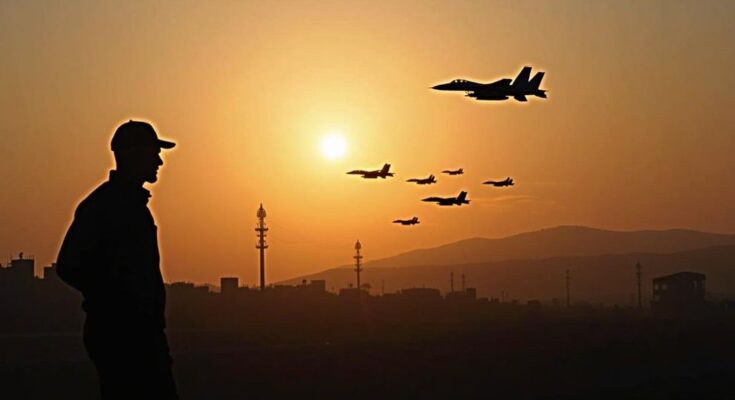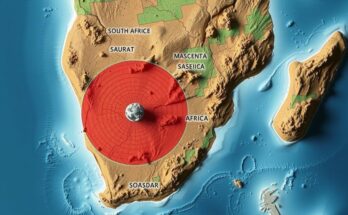The Israeli military struck Hezbollah targets in Lebanon following the confirmed death of longtime leader Hassan Nasrallah, vowing to counteract any threats. Iran condemned the killing and announced a period of mourning, while US President Joe Biden labeled it as a “measure of justice.” Israeli officials stated Nasrallah’s elimination would shift regional power dynamics significantly. The conflict has led to civilian casualties, underscoring the dire humanitarian situation in the region.
On Sunday, the Israeli military escalated its offensive against Hezbollah in Lebanon, claiming to have targeted numerous installations belonging to the militant group, which included launch sites directed at Israel. This military action followed the announcement of the death of Hezbollah’s long-time leader, Hassan Nasrallah, whose passing has provoked significant international tension. Iran condemned the killing, asserting it would respond and expressing its intent to observe five days of public mourning in honor of Nasrallah. Iranian Supreme Leader Ayatollah Ali Khamenei emphasized that Nasrallah’s death would not go unpunished, amidst declarations of vengeance. In a related statement, President Joe Biden characterized the operation that led to Nasrallah’s death as a “measure of justice” for victims of what he referred to as a prolonged period of terror spanning over four decades. He also reiterated the importance of pursuing a ceasefire between Israel and Hezbollah. Recent developments indicate that the Israeli military reported the successful elimination of several key Hezbollah figures, including Nasrallah and Ali Karki, the commander of the group’s southern front, during an air strike in Beirut. This attack was a decisive moment, with Prime Minister Binyamin Netanyahu stating that the repercussions of Nasrallah’s demise would significantly alter the balance of power in the region for years to come. Lebanon’s health ministry reported that Israeli air strikes resulted in at least 33 fatalities and nearly 200 injuries as hostilities intensified.
The ongoing conflict between Israel and Hezbollah has a complex history, driven by political, military, and ideological factors. Hezbollah, a militant group backed by Iran, has been a significant player in Lebanese and regional politics since its inception in the early 1980s. The recent killing of Hassan Nasrallah, a figure deeply intertwined with Hezbollah’s operations and strategy, has escalated tensions in an already volatile region. This incident has stirred reactions both locally, in Lebanon, and internationally, raising concerns about broader implications for Middle East stability and U.S. foreign policy interests in the area. The backdrop of consistently rising violence includes air strikes, retaliatory actions, and casualties that have compounded over recent months, underscoring the fraught and explosive nature of the Israeli-Hezbollah clashes.
The events surrounding the killing of Hassan Nasrallah represent a pivotal moment in the ongoing conflict between Israel and Hezbollah. The Israeli military’s intensified strikes on Hezbollah positions in Lebanon signal a possible escalation in hostilities. Concurrently, Iran’s vow to retaliate suggests an impending cycle of violence that could further destabilize the region. With world leaders urging for calm and deliberation, the international community watches closely as the situation develops, wary of the profound regional implications inherent in these developments.
Original Source: www.france24.com




